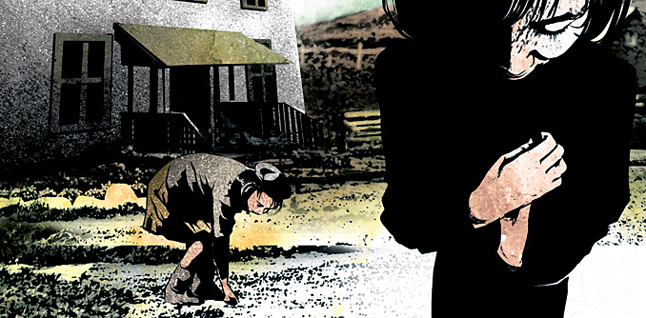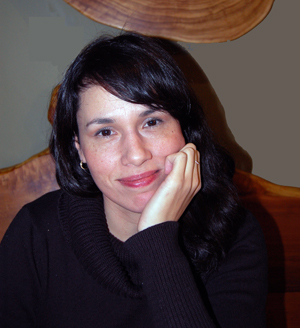
By David F. Rooney
Little did Nadia McLaren realize, at age four, that her grandmother’s periodic sorrow was caused by the great cultural tragedy of the forced assimilation of thousands of native children during the last century.
But that episode stuck with her for years until, one day, she realized the truth behind the residential schools phenomenon and decided to explore it.
By then her bellowed grandmother had passed away and McLaren was seeking a way to commemorate her and simultaneously make sense of the residential school experience that had scarred her for life.
A talented painter who studied art in Toronto and Florence, McLaren initially wanted to paint the portraits of native elders and record their memories. But then she thought: Why not film them?
And so she did. Using a $15,000 grant from the Ontario Arts Council the young Ojibway woman from Sioux Lookout produced Muffins for Granny, a mix of live action and animation that tells the story of her grandmother, Theresa McCraw of the Heron Bay Pic River Reserve, as well as the stories of seven elders whose lives were similarly altered by residential schools.
The 88-minute documentary film, which was produced in 2007, was widely acclaimed and is now being publicly shown — for free — at the Revelstoke Performing Arts Centre on Friday, January 16, at 7 pm. McLaren will be available for a public Question & Answer period at the conclusion of the film.
I haven’t seen the film yet and am looking forward to viewing it on Friday. McLaren’;s media press kit describes the film this way: “Muffins for Granny takes you through the personal stories of seven elders who have lived through one of the darkest chapters in Canada’s History. There are times when each has almost given up. True stories of rape, murder and suicide are told with only the hope that somehow it may begin the healing this country and its people so desperately need. We begin to see that truth can be a bitter medicine but once absorbed it begins to heal from within, no longer causing pain from the outside.”
McLaren, a 38-year-old mother of two who is the new elementary aboriginal education assistant, is proud of her film and hopes it will touch all those who see it.
The residential schools issue is a difficult one for Canadians, but for vastly different reasons. For natives of all ages, it is a gut-wrenching tragedy that traumatized them and their parents and grandparents as individuals and that wounded them as a people culturally, linguistically and spiritually. Thoughtful non-natives recognize this but for some it is difficult to truly empathize, unless they are, like the Irish, from a culture was similarly destroyed by foreign conquerors. Others sympathize but quietly wish that the subject would just dry up and blow away. That kind of wishful thinking may stem from outright bigotry or from both ennui spawned by the relentless news coverage of this issue over the last 20 years or the way the wrongs our ancestors committed against native peoples contradicts the national self image we like to project.
But regardless of what we make of it, this is an issue we must all come to terms with, McLaren said in an interview.
“I think it’s time for all Canadians to start thinking differently about everything,” she said. “I really feel, especially in a place like Revelstoke, that we should speak frankly about everything — even our shortcomings. Dark things lose their power when they’re exposed to the light.”



